How to apply for a Netherlands Schengen visa from the UK
Read this guide to applying for a Netherlands Schengen visa from the UK. Learn visa requirements, fees, and the official application process for short stays.
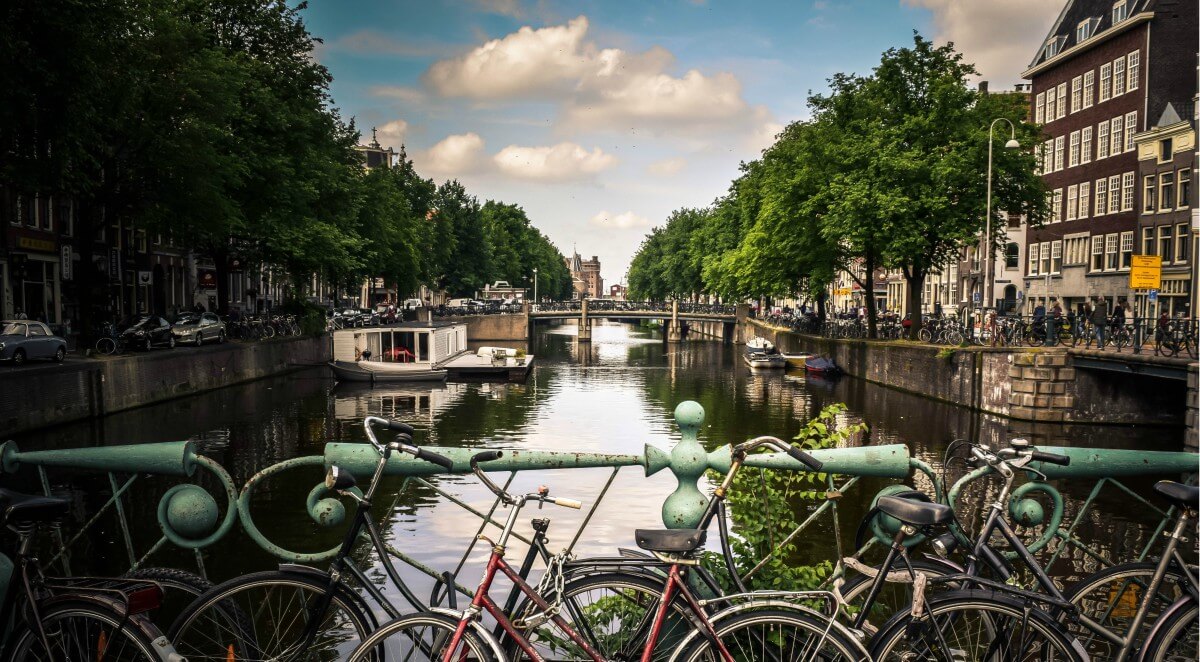
If you’re moving to the Netherlands from the UK as an expat to study or work, or just heading there for a city break or short holiday, you’re going to need some cash to make the most of it. If you plan on using ATMs to withdraw local currency while you’re in the Netherlands, here’s all you need to know to avoid common pitfalls, and unnecessary fees.
And, if you want to avoid exchange rate markups and sneaky transaction fees while spending in the Netherlands, then check out the Wise card. You can also use it to spend in 150+ countries, including the Netherlands. Your transactions abroad are automatically converted into British pounds using the fair mid-market exchange rate.
ATMs in the Netherlands are called geldautomaten.
Finding an ATM will be no problem in towns and cities in the Netherlands - just look in or near bank branches, shopping centres and supermarkets. However, if you’re headed to somewhere more rural it’s always a good idea to take some cash with you, as ATM access could be more limited.
Using an ATM in a bank branch is a smart idea, as there are ‘independent’ ATMs in the Netherlands which charge more than you need to pay. More on that later.
Wherever in the Netherlands you happen to be, you can find a convenient ATM using one of the following ATM locators from large national and regional banks:
You can use any major credit and debit card in stores and restaurants in towns and tourist areas in the Netherlands. It’s worth noting, however, that the Discover card has only a ‘growing’ merchant acceptance¹, and there are few ATMs which will accept the Discover card. If that’s your only card, you might need to carry cash or consider applying for another card just in case.
Find a handy ATM on the same network as your card, using one of the following locators:
Dutch Bank cards have chip and pin technology, with a 4-digit PIN code. That means, to use an ATM in the Netherlands, even if you have an American magnetic stripe card, you’ll need a PIN code. Generally, you can get this easily from your bank before you travel.
Cards issued in the UK typically have chip and pin technology, and are widely accepted.
The daily cash withdrawal limit set up in your home bank might dictate what you can withdraw from ATMs in the Netherlands.
If you don’t have a limit set on your card, then the ATM provider’s rules will apply. These vary between banks, but you can expect limits per transaction. These vary a lot between banks and could be between €250 - €400 if you use a foreign card. Usually, local cards have a higher limit – f.e. ABN Amro limits their issued cards at €2,000 per transaction.²
Using a credit or debit card abroad is a convenient and easy solution for most people. However, it’s helpful to tell your bank before you travel overseas, in case their fraud department limits or blocks your card, because of the change in spending patterns.
Letting your bank know your plans is easy - just call into your local branch or look for an online form, which is usually available by logging into your online banking.
Bank ATMs in the Netherlands tend not to charge a fee per withdrawal. However, there are many ‘independent’ ATMs which do, meaning you could end up paying far more than you have to. Avoid these and the common exchange rate rip-offs like Dynamic Currency Conversion to get the best deal possible.
Even if the ATM provider doesn’t charge a withdrawal fee, you should be on your guard when withdrawing cash. The most common issue for travellers is something called dynamic currency conversion (DCC). You might see this anywhere you use your card - in a store, restaurant, or using an ATM. Under DCC, you’ll be asked if you want to pay for your transaction in your British pounds as opposed to euros.
The problem is that DCC transactions often don’t use the mid-market rate - the one you’ll find if you google it. If you choose to pay in pounds, the euro exchange rate is decided by the foreign bank or ATM provider, and they can mark up the rate and pocket the difference as their profit. Choose to pay in the local currency instead, and you’ll almost always get a fairer rate on the exchange.
Check the fees levied by your bank for overseas ATM withdrawals, before you go. They’ll be set out in your terms and conditions document, or you can ask someone in your local branch to help find the information you need.
Most bank ATMs in the Netherlands don’t actually charge per withdrawal. However, there’s no law against withdrawal fees. This means that if you come across an ATM in a convenience store, pub or nightclub, the chances are that it’s run by an independent network, which makes its money by charging unsuspecting customers.
Avoid these ATMs and stick to those in or near banks if you can.
If you have a euro account, you might be able to avoid ATM and currency conversion charges in the Netherlands by sticking to bank ATMs. However, this depends a lot on your home bank's policy. If you hold a bank account in a currency other than euros, then the chances are you’ll be charged for the conversion.
You can at least reduce - if not entirely avoid - some of the likely ATM fees in the Netherlands with a few simple tricks.
Call your home bank before you leave, and ask if they have any local partner institution in the Netherlands. Often banks form networks to offer free or cheap international cash withdrawals to their customers overseas.
If you have several bank accounts, do some homework before you travel, and find out about overseas ATM fees levied by each of them. Every account will have its own charging structure, and some are much cheaper than others. Use the one which will leave you with the most cash in your pocket to enjoy the Netherlands.
Credit card cash advances using a foreign currency are usually an expensive choice and should be avoided if at all possible.
You could be hit by fees using independent ATMs in tourist locations, pubs, nightclubs and other places with a captive audience. They should declare their fees before you process the transaction, so you can avoid them - and in the towns at least there’s always a bank somewhere nearby.
Don’t forget our “friend” DCC. If you’re asked whether you want to pay in pounds or euros, euros is always the smartest choice. Otherwise, you could be hit with high fees and poor exchange rates because of DCC.
And, if you’re looking for a transparent and safe alternative to manage your money in the UK or when travelling abroad, consider signing up with Wise. You can get a Wise card, a multi-currency card that automatically converts your pounds into local currency in 150+ countries at the fair mid-market exchange rate.
If you steer clear of DCC, then ATMs are a convenient way to get the euros needed for a visit to the Netherlands, with a fair exchange rate. Check out if your home bank has a partnership with some of the local banks in the Netherlands – you could get fee-free withdrawals or at least a discount.
Here is a list of the European countries that charge the highest ATM fees.
Sources used:
Sources last checked on date: 11-Dec-2022
*Please see terms of use and product availability for your region or visit Wise fees and pricing for the most up to date pricing and fee information.
This publication is provided for general information purposes and does not constitute legal, tax or other professional advice from Wise Payments Limited or its subsidiaries and its affiliates, and it is not intended as a substitute for obtaining advice from a financial advisor or any other professional.
We make no representations, warranties or guarantees, whether expressed or implied, that the content in the publication is accurate, complete or up to date.
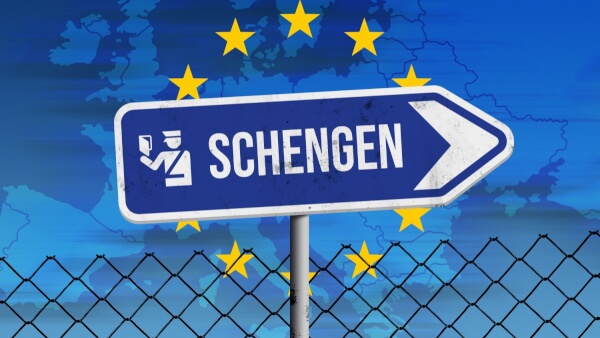
Read this guide to applying for a Netherlands Schengen visa from the UK. Learn visa requirements, fees, and the official application process for short stays.

The VAT refund system in the Netherlands allows tourists to claim back the tax paid on goods. This guide will show you how to shop tax free in Amsterdam.
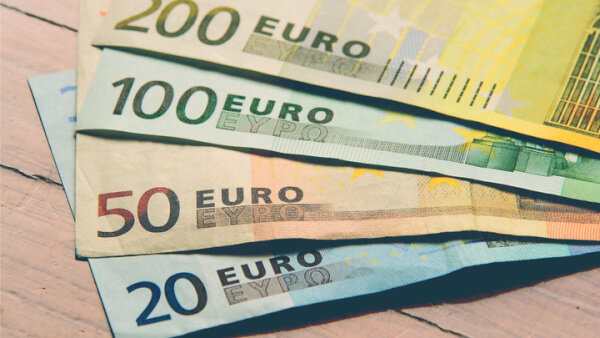
Read our helpful guide to money, banks and currency in the Netherlands, plus info on cards and currency exchange.

Read our guide on the best travel card for Amsterdam, including card comparisons and travel tips.
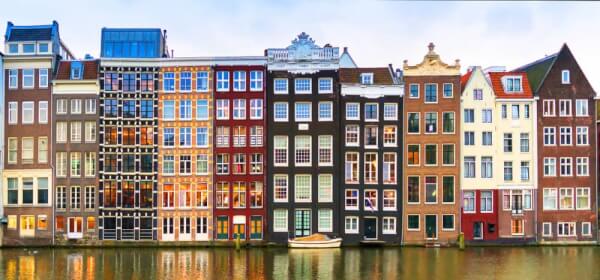
A handy guide to the Eurostar London to Amsterdam rail route, including timetable, journey times, prices and more.
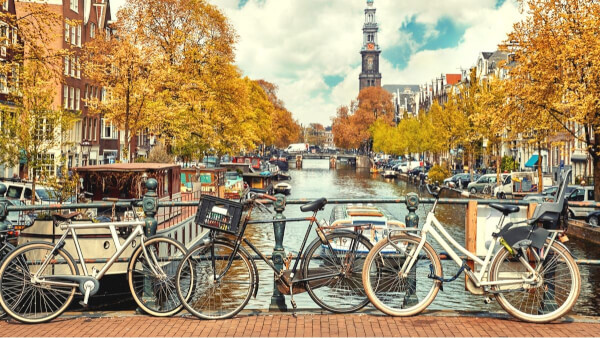
Travelling to Amsterdam: Find out how to spend and get around while you’re there.